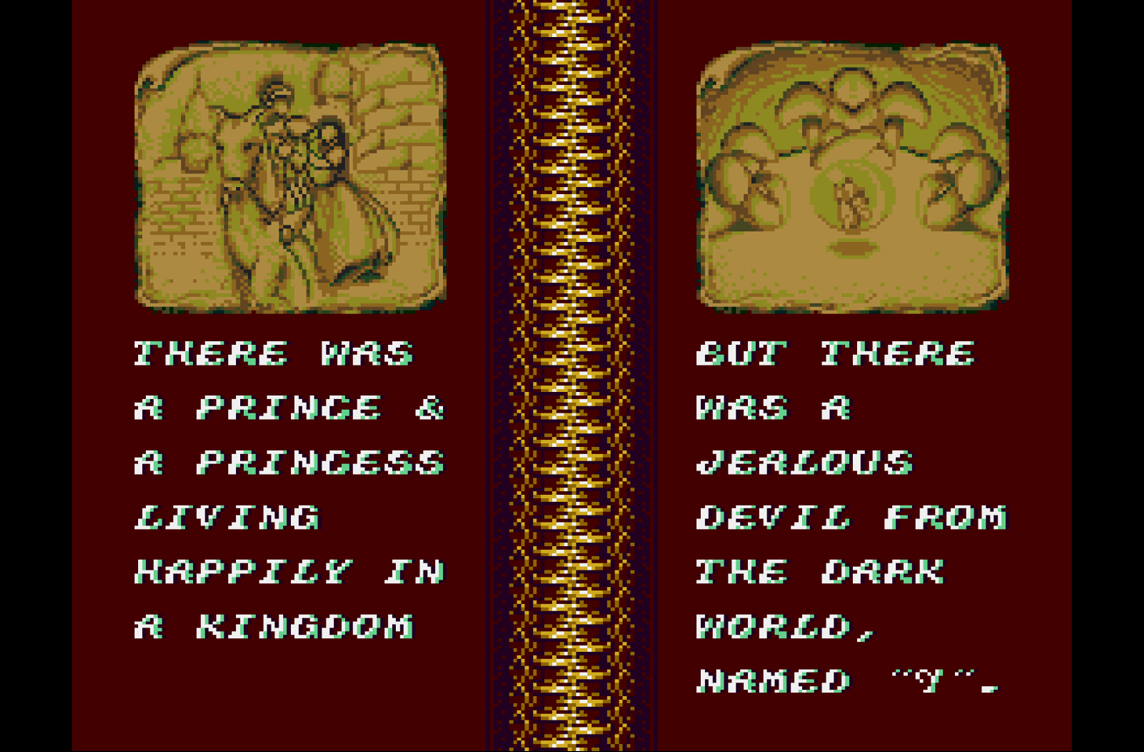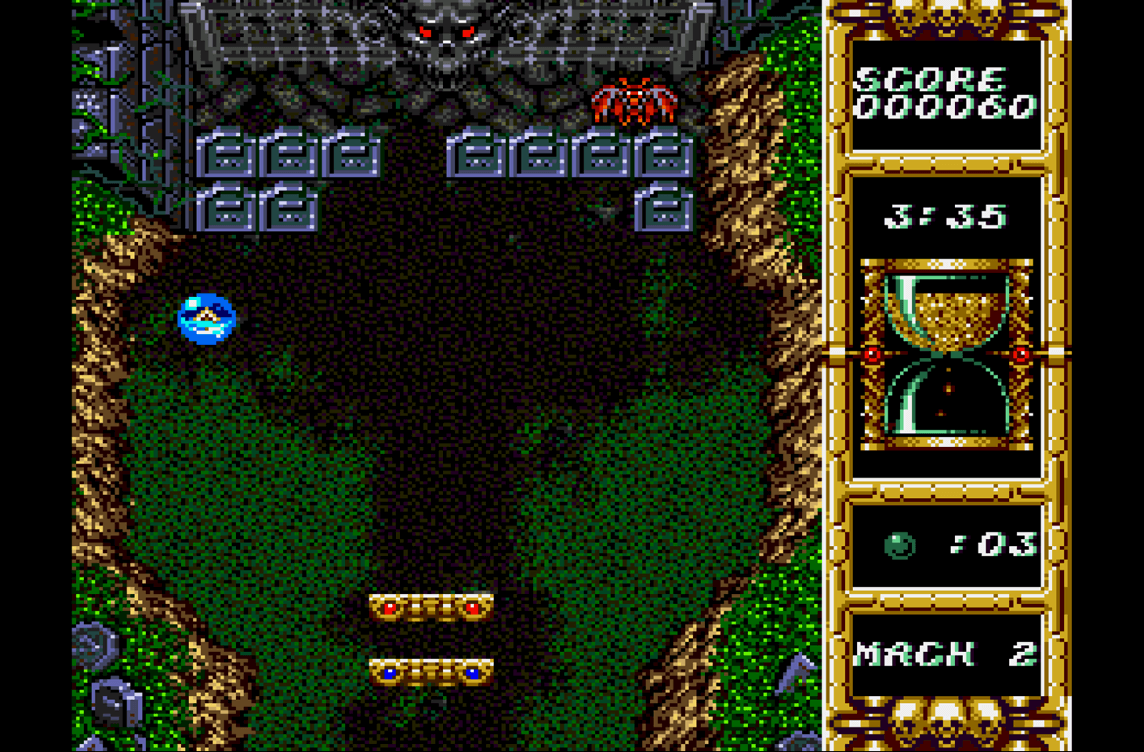The inception of Devilish: The Next Possession can be traced back to the Atari classic Breakout, conceived in 1976 by either Steve Jobs or Nolan Bushnell, depending on the account. Little could they have foreseen the multitude of games that would spawn from this foundational concept.
Over the years, numerous iterations and clones have emerged, each endeavoring to enhance the original formula with new gameplay elements or more sophisticated graphics. In this continuum, Devilish sought to stand out by offering a distinctive twist to the classic ball-and-paddle archetype.
Developed by Aisystem Tokyo, it was envisioned as a foray into a nightmarish domain, where players would manipulate paddles that could be reconfigured dynamically, an intriguing premise indeed.
The potential for a remarkable gaming experience was palpable. However, somewhere along the developmental trajectory, a misstep occurred, transforming this potential into a frustrating and ultimately unsatisfying reality.

A Rushed Undertaking
The project, in its entirety, exuded an air of haste. Notably, the narrative framing is starkly illustrative of this hurried approach. The tale unfurls with a prince and princess transmogrified into paddles by the malevolent entity “Y.” While the storyline’s depth is hardly pivotal to the gameplay, it serves as the initial impression upon launching Devilish.
Regrettably, this initial encounter does little to inspire confidence in what is to follow. It is a foreboding indicator of the unpolished gameplay that looms ahead.
Faltering Gameplay
At the crux of Devilish’s tribulations lies gameplay, the quintessential facet that undergirds any successful ball-and-paddle endeavor. It is here that Devilish unequivocally stumbles. In the annals of game design, Jobs and Bushnell understood that accessibility was paramount. The success of Breakout was predicated on this understanding.
Devilish: The Next Possession, however, diverges from this foundational wisdom. Instead of prioritizing intuitive mechanics, it leans on superficial aesthetics and an engaging musical score to sustain player interest.
This deviation from established principles culminates in an experience that is more exasperating than exhilarating. In a cruel twist of irony, lives are squandered with alarming swiftness, a stark contrast to the enduring engagement that characterized Breakout.
Innovative Features Amidst Frustration
Aisystem introduced innovative elements, allowing players to dynamically reconfigure offensive and defensive paddles. This provided strategic advantages, facilitating precise ball control and stage progression. However, these innovations were overshadowed by erratic ball physics, marring the gaming experience.
Colliding with Frustration
Devilish’s downfall lies in its flawed ball physics, a cardinal sin in the ball-and-paddle genre. Unpredictable ricochets and unpredictable trajectories undermine player agency, leading to a guessing game rather than a skill-based challenge. This departure from established physics principles is a glaring misstep.

Visual Splendor and Auditory Triumph
Despite its gameplay shortcomings, Devilish: The Next Possession shines in visual design, featuring captivating demonic landscapes across diverse stages. Boss battles and a stellar soundtrack further elevate the game’s aesthetic appeal. These elements, however, can only do so much to compensate for gameplay deficiencies.
A Tarnished Legacy
Potential of this game remains unfulfilled, leaving it relegated to the realms of missed opportunities. Even a Nintendo DS remake failed to rectify its core issues, emphasizing the enduring legacy of unmet potential.
A descent into Devilish’s realm offers glimpses of brilliance marred by gameplay missteps.
Conclusion
While Devilish exudes visual allure and auditory excellence, its gameplay falters significantly. Innovative features and dynamic mechanics are overshadowed by erratic ball physics, resulting in a frustrating and unfulfilling experience. This, unfortunately, cements this game as a title bound for obscurity.
Play Devilish: The Next Possession Online Anywhere, Anytime!
Experience Devilish: The Next Possession on our website, accessible on desktops, mobiles, and tablets. Embrace the challenge and explore its demonic realms, all at your convenience.